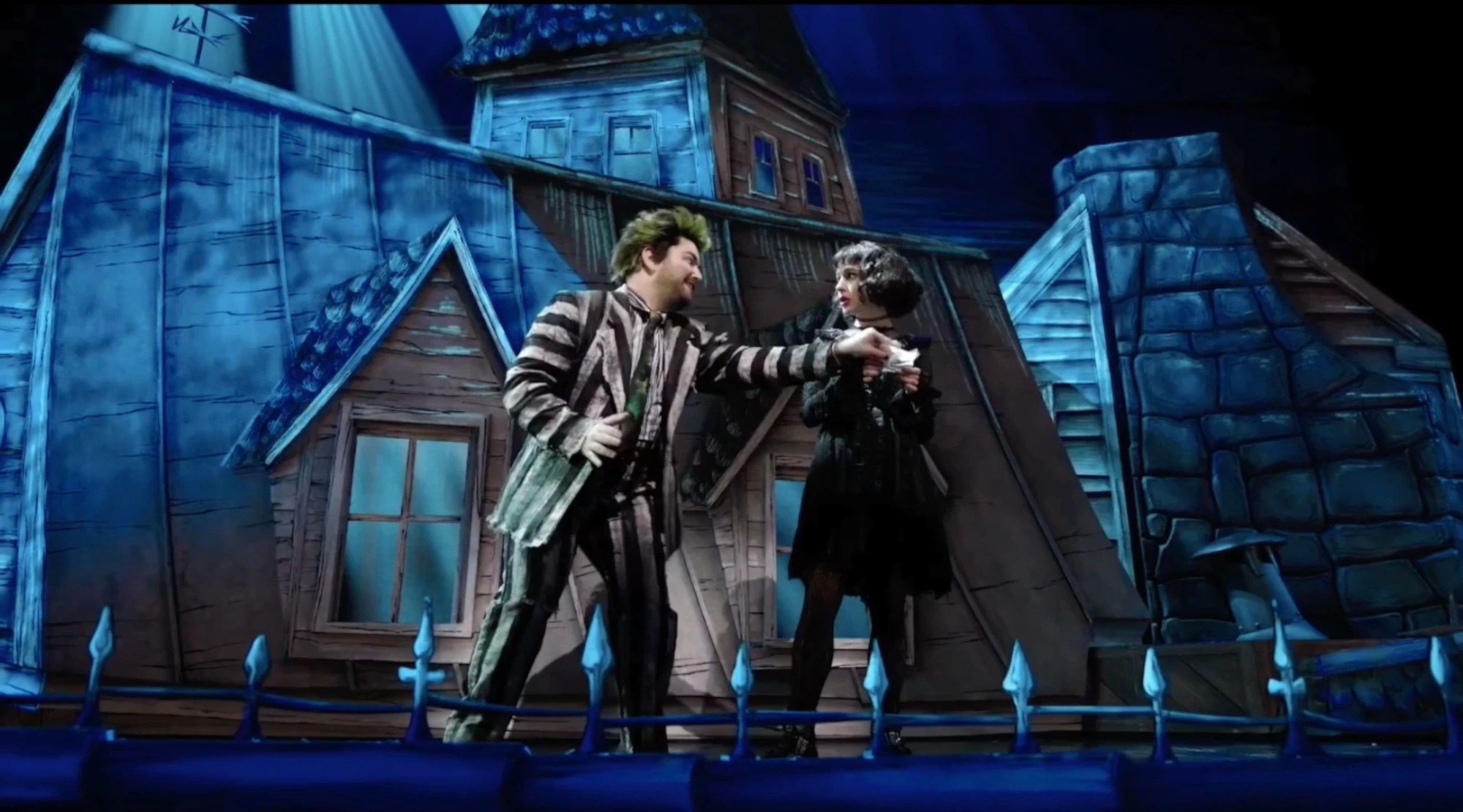In the realm of cult classic films, few characters are as iconic as Beetlejuice, the mischievous ghost played by Michael Keaton. This quirky film, directed by Tim Burton, has left an indelible mark on pop culture since its release in 1988. Among the many memorable lines and scenes, the phrase "Beetlejuice, say my name" resonates deeply, capturing the essence of this chaotic yet hilarious supernatural being. Fans of the film often find themselves intrigued by the character's wild antics and the underlying themes of life, death, and the afterlife.
From the moment he bursts onto the screen, Beetlejuice captivates audiences with his irreverent humor and unpredictable behavior. The film's fusion of horror and comedy has made it a beloved classic, and the phrase “Beetlejuice, say my name” has become a cultural reference for summoning someone or something. As we delve deeper into this quirky character, we will explore his origins, his impact on pop culture, and why his name carries so much weight in the world of film and beyond.
The character of Beetlejuice represents more than just a ghost; he embodies a sense of freedom and rebellion against societal norms. His outlandish personality and carefree attitude invite viewers into a world where the rules of the living do not apply. In this article, we will break down the significance of the phrase “Beetlejuice, say my name,” its implications within the narrative, and how it has transcended the film to become an enduring part of popular culture.
Who is Beetlejuice?
Beetlejuice is a character from the 1988 film of the same name, directed by Tim Burton and written by Michael McDowell. The film follows the story of a recently deceased couple who haunt their former home, attempting to scare away the new inhabitants. They enlist the help of Beetlejuice, a mischievous and unpredictable ghost with a penchant for chaos. His character is a blend of humor, horror, and a touch of charm, making him one of the most memorable characters in cinema history.
What is the Origin of the Character?
The character Beetlejuice was originally conceived as a malevolent spirit who would terrorize the living. However, Tim Burton's vision transformed him into a more comedic figure. Michael Keaton's portrayal brought Beetlejuice to life, infusing the character with a wild energy that kept audiences engaged. His signature striped suit, unkempt hair, and zany personality made him an unforgettable icon.
What Makes the Phrase "Beetlejuice, Say My Name" So Special?
The phrase "Beetlejuice, say my name" holds significant weight within the film's narrative. It serves as a catalyst for the action, as the character can only be summoned when his name is spoken three times. This repetition not only emphasizes the power of names but also highlights the consequences of invoking a spirit like Beetlejuice. The phrase has since entered the lexicon of pop culture, often used humorously in various contexts.
Why is Beetlejuice a Cult Classic?
Beetlejuice has earned its status as a cult classic for several reasons. Firstly, its unique blend of horror and comedy appeals to a wide audience, making it accessible to fans of various genres. Secondly, the film's distinctive visual style, characterized by Burton's signature gothic aesthetic, sets it apart from other films of its time. Lastly, the performances by the cast, particularly Michael Keaton, have left an indelible mark on cinema.
What Are Some Iconic Scenes Featuring "Beetlejuice, Say My Name"?
- The initial summoning of Beetlejuice, where the couple learns about the consequences of calling him.
- The chaotic dinner party scene, where Beetlejuice wreaks havoc on the unsuspecting guests.
- The climax of the film, where the characters confront Beetlejuice in a dramatic showdown.
How Has Beetlejuice Influenced Popular Culture?
Beetlejuice's influence can be seen across various media, from animated series to merchandise and Halloween costumes. The character has become a staple in Halloween culture, with fans dressing up as him and quoting lines from the film. The phrase "Beetlejuice, say my name" has also been referenced in numerous television shows, films, and even music, solidifying its place in pop culture history.
What Can We Learn from Beetlejuice?
While Beetlejuice may be a mischievous character, he teaches us about the importance of embracing our individuality and the idea that life is too short to take too seriously. The film encourages viewers to confront their fears and embrace the unknown. It also serves as a reminder that sometimes, chaos can lead to unexpected and entertaining outcomes.
What is the Legacy of Beetlejuice Today?
Today, Beetlejuice remains a beloved character, with a dedicated fan base that spans generations. The film's continued popularity has led to discussions about potential sequels and reboots, showcasing its lasting impact on cinema. The phrase "Beetlejuice, say my name" continues to resonate, serving as a reminder of the film's charm and the unique character that captivated audiences over three decades ago.
Final Thoughts: Why Say "Beetlejuice, Say My Name"?
In conclusion, the phrase "Beetlejuice, say my name" is more than just a line from a film; it encapsulates the essence of a character and a story that has resonated with audiences for years. Whether used in jest or as a reference to the film, the phrase serves as a gateway to a world of humor, chaos, and the supernatural. As we celebrate the legacy of Beetlejuice, we invite fans to embrace the spirit of this iconic character and remember the fun that comes with saying his name.
Unlocking The Mystery: Principle Or Principal?
Embracing The Charm Of "We Are Siamese If You Please"
Unveiling The Truth: Is Chapell Roan Lesbian?


